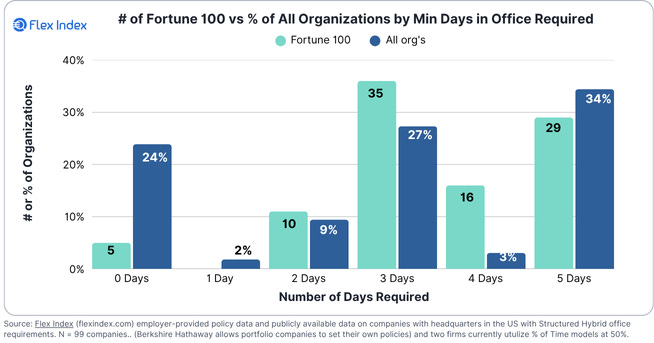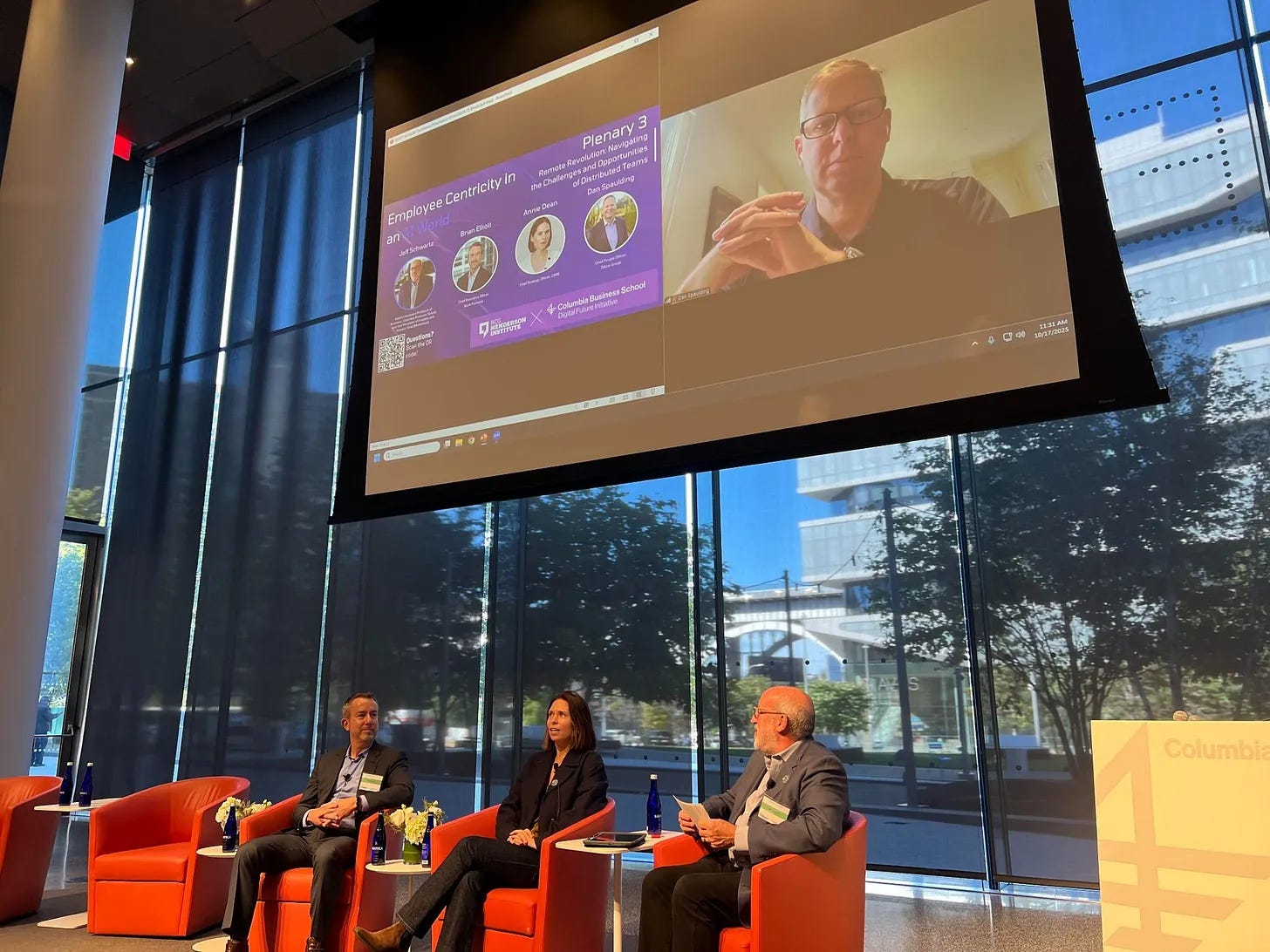Want Retention? Offer Flexibility
Plus, why forcing RTO may be sabotaging your AI ROI
👋 Happy Tuesday! While some executives obsess over RTO productivity metrics, Gen Z is focused on something else entirely: their love lives. One in three Gen Z workers believes office mandates could improve their chances of finding romance, with 79% reporting dating app burnout and 21% actually applying for jobs hoping to meet someone special.
In this week’s edition:
🚶 When RTO Forces Out Talent
📊 Fortune 100’s Office-Heavy Hybrid
🤖 The Flex Work Advantage in AI ROI
Current Subscribers: 10,429
Please forward to colleagues and friends!
THIS WEEK’S FLEX FOCUS 🔍
Force RTO & Your Best Talent May Walk
When employers mandate full-time office returns, experienced talent walks. A new McKinsey study of nearly 10,000 U.S. workers found that 17% of recent job departures happened specifically because employers changed their working model policies—making flexibility a top-three driver of voluntary exits.
The expectation gap is stark: 43% of prime-age workers already work remotely, but 60% want the option. Among degree holders, 75% prefer remote work, and three-quarters will outright decline inflexible roles.
McKinsey’s analysis of 4,000 B2B executives found 35% of hybrid firms achieved double-digit revenue growth versus 28% of location-locked companies. Yet rigid attendance policies remain common, handing remote-friendly competitors a major recruiting advantage. High earners and educated professionals recognize their leverage and move fast.
FLEX WORK QUICK HITS 💥
Stay ahead of the curve with our curated roundup of the trending flexible work stories making waves right now. Here's what you need to know 👇
Bloomberg: Microsoft exempts many sales roles from its 3-day RTO mandate, citing that client-facing work “differs from other parts of Microsoft”.
Fortune: JPMorgan’s new $3B Manhattan HQ features 19 restaurants, desk-delivery coffee via app, and 24/7 access with 50% more hospitality space than any previous company property.
Business Insider: Toptal CEO says companies misunderstand hybrid—it should mean quarterly off-sites for high-impact collaboration, not weekly office mandates.
STAT OF THE WEEK 📈
Fortune 100 Leans Into Office-Heavy Hybrid
Fortune 100 companies are less flexible than the overall market, but headlines claiming a ‘return to full-time office’ miss the mark. 71% of Fortune 100 firms still offer flexibility. 66% of the Fortune 100 have a Structured Hybrid policy, and 29% are Full Time in Office.
The real shift: toward office-heavy hybrid. While only 29% require Full Time in Office. another 16% require 4 days—meaning 45% of Fortune 100 workers are in the office almost daily. That compares to an overall average of 3% of firms with a 4 day Structured Hybrid policy.
FLEXPERT INSIGHTS 🧠
The Flex Work Advantage in AI ROI
CEOs are spending millions on AI while forcing employees back to offices five days a week and wondering why their ROI is tanking. In his latest Work Forward newsletter, Brian Elliott argues that companies reverting to verbal, office-based processes are destroying the documented workflows AI requires to succeed.
While only 4-5% of companies see positive AI ROI, the winners aren’t herding people into cubicles; they’re the ones who spent five years documenting how work gets done for flexible teams. In fact, employee-centric firms that embrace flexibility are 7X more likely to see positive returns on AI investments.





